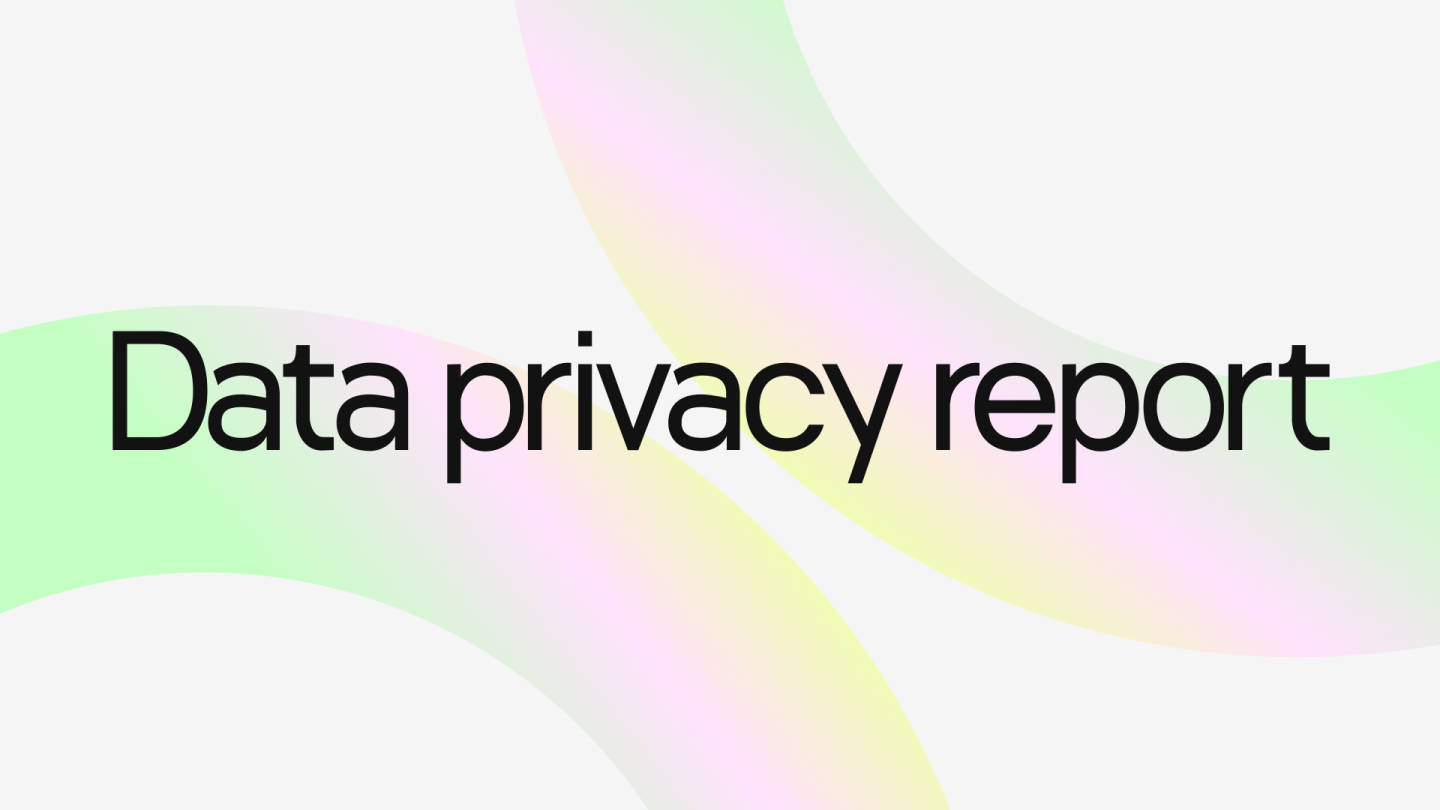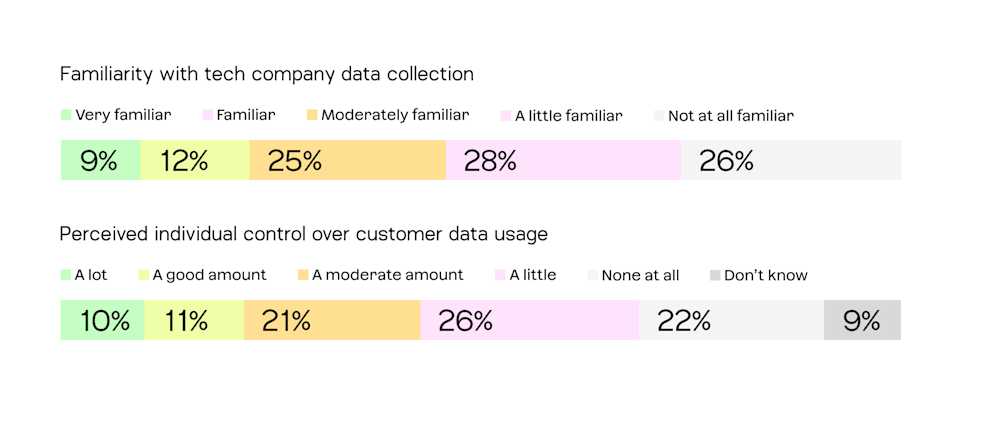Reclaiming Privacy: Aleo’s Mission to Empower Users

Internet privacy matters. It allows us to live our lives more freely online, whether we’re playing our favorite games, connecting with friends and family, or accessing critical services.
But how pressing of an issue is it for the public? In a new report based on a national survey conducted in collaboration with Morning Consult, our research found that data privacy and security of the apps we use every day was a primary concern.
In this piece, we’ll explore the five most important discoveries from our research and explain how Aleo works to give users control over their data.
Data privacy and security are tech’s biggest challenges
The Internet today faces a myriad of complex and growing problems, from cyberbullying to the spread of fake news and political censorship.

But among many worrisome issues, data privacy and security still emerged as more troubling than the rest with 48% of respondents listing it as their most concerning issue. Those concerns were uniquely bipartisan, equally spread across political affiliations, but were highest among older adults and those with higher education and income levels.
“These numbers underscore the urgent need to rebuild faith through innovative solutions that prioritize user privacy,” said Brennen Schlueter, CMO at Aleo and one of the report’s co-authors. “Privacy has gone from something users hope for to something they demand.”
Big tech corporations need to build trust
In general, consumers do not believe that tech companies are currently hitting the mark when it comes to protecting and securing the privacy of their data.
Despite their ubiquity in modern life, consumers are less likely to trust large technology companies than they are financial services, retail, or streaming companies — just 43% trusted them with data privacy and security, compared to more than half of all respondents trusting those other industries with their data.
Crypto companies need to be especially mindful of consumer perception, as only 10% of respondents said they had a “great deal” of trust in the industry’s data security and protection.
People are open to switching to more private solutions

Nearly twice as many people said that new security products and tools are needed — 55% of respondents — compared to the 23% who believe existing options are enough. Moreover, two-thirds of consumers said they would be highly motivated to switch products if there was a solution built with a focus on protecting their data.
Consumers want more control over their data
In general, the public is frustrated about their lack of knowledge or control over their data. Just over a fifth of respondents said they were familiar with how companies use their data or that they felt like they had a good amount of control over how companies use their data.

What can be improved? For one, people would like to see companies take action by being more straightforward in communicating the measures they take to ensure privacy and security in a clear and upfront way, rather than found deep in the “fine print.”
People feel disempowered to control their personal privacy
Three in five adults feel like they should be personally doing more to protect their data, but the vast majority of those adults say they believe solutions would be too technically complicated or are just not sure where to go for help.
Their confusion is understandable. Outside of the occasional “opt-out” button, most tech platforms give consumers few choices regarding how their data is shared and with whom. But at the same time, “Consumer attitudes are shifting,” said John Reynolds, Head of Product at Aleo. “With the media covering data breaches, leaks, hacks, scams and ransomware more than ever, these risks are top of mind for the public.”
How Aleo can help
A radical solution is needed to bring the public the level of privacy they demand. Aleo is purpose-built for privacy, crafted specifically to return control to people over how their data is used and who has access to it.
It does so by leveraging zero-knowledge proofs (ZKPs), a computational method that improves data privacy. ZKPs allow one person to “prove” to another party that a statement is true without revealing any extra information.
These proofs can transform how we protect, manage, and share our personal data while:
Accessing financial services, allowing you to apply for credit or a mortgage without having to potentially expose your private documents online.
Applying for jobs, making it possible for you to share proof of your degrees or professional certifications without having to share your entire academic transcript with prospective employers.
Seeking medical treatment, ensuring that the private medical information you provide to doctors is limited to only what is actually necessary to share and nothing more, while also reducing the risk of your data being compromised in cyber attacks.
While Aleo has a broad number of functions and applications built on its secure ZK infrastructure, it makes these use cases possible by allowing people to privately upload their documents on their secure personal devices before sending proofs of certain information to others online. Because their underlying data is never shared online, they can trust that less of their information is at risk of being exposed to bad actors through data breaches.
This also benefits tech companies, financial institutions, and other centralized organizations that typically have been responsible for storing their users’ data and have become the target of costly cyber attacks as a result.
The demand for apps that are private by default is there — are you ready to build them? Review the full 2024 privacy report and then get started by visiting our GitHub.


